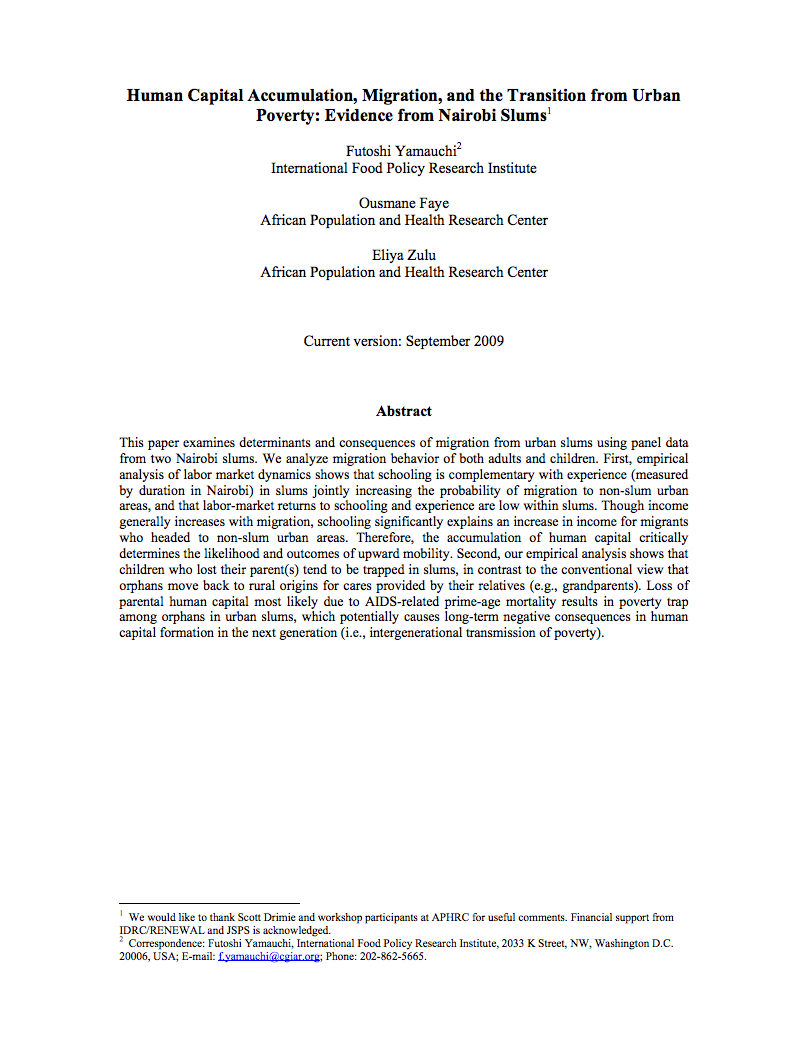Resource information
This paper examines determinants and consequences of migration from urban slums using panel data from two Nairobi slums. We analyze migration behavior of both adults and children. First, empirical analysis of labor market dynamics shows that schooling is complementary with experience (measured by duration in Nairobi) in slums jointly increasing the probability of migration to non-slum urban areas, and that labor-market returns to schooling and experience are low within slums. Though income generally increases with migration, schooling significantly explains an increase in income for migrants who headed to non-slum urban areas. Therefore, the accumulation of human capital critically determines the likelihood and outcomes of upward mobility. Second, our empirical analysis shows that children who lost their parent(s) tend to be trapped in slums, in contrast to the conventional view that orphans move back to rural origins for cares provided by their relatives (e.g., grandparents). Loss of parental human capital most likely due to AIDS-related prime-age mortality results in poverty trap among orphans in urban slums, which potentially causes long-term negative consequences in human capital formation in the next generation (i.e., intergenerational transmission of poverty).


